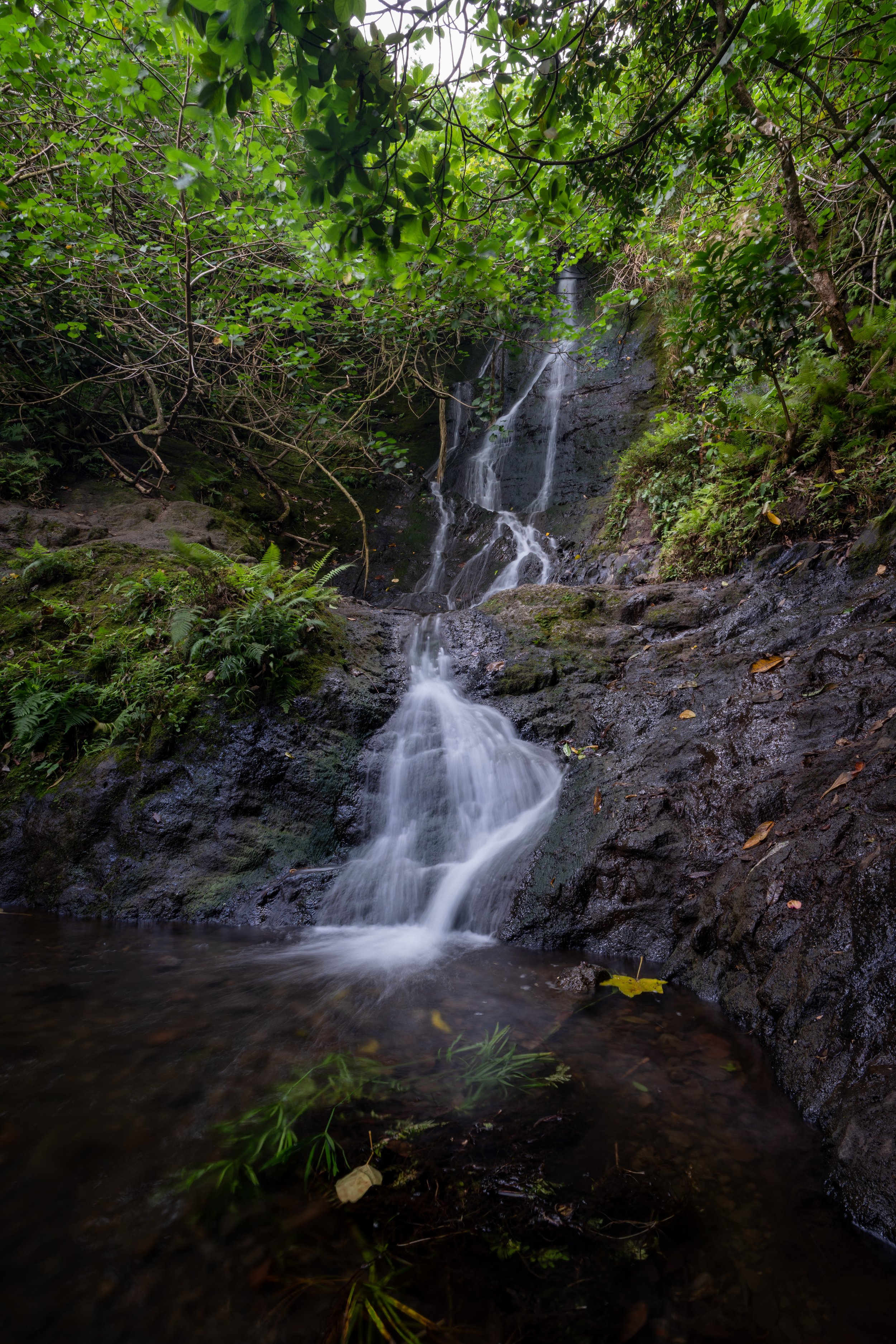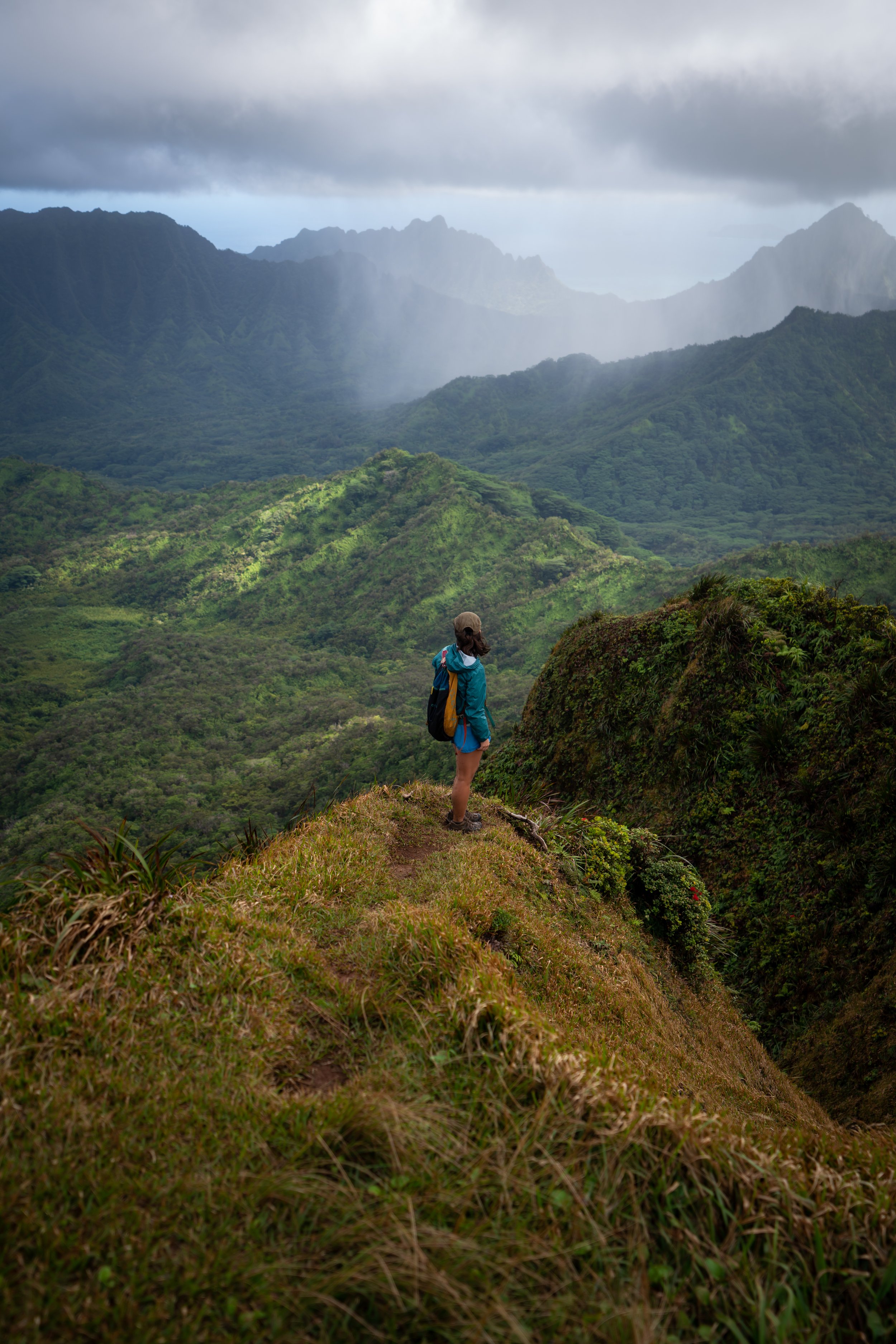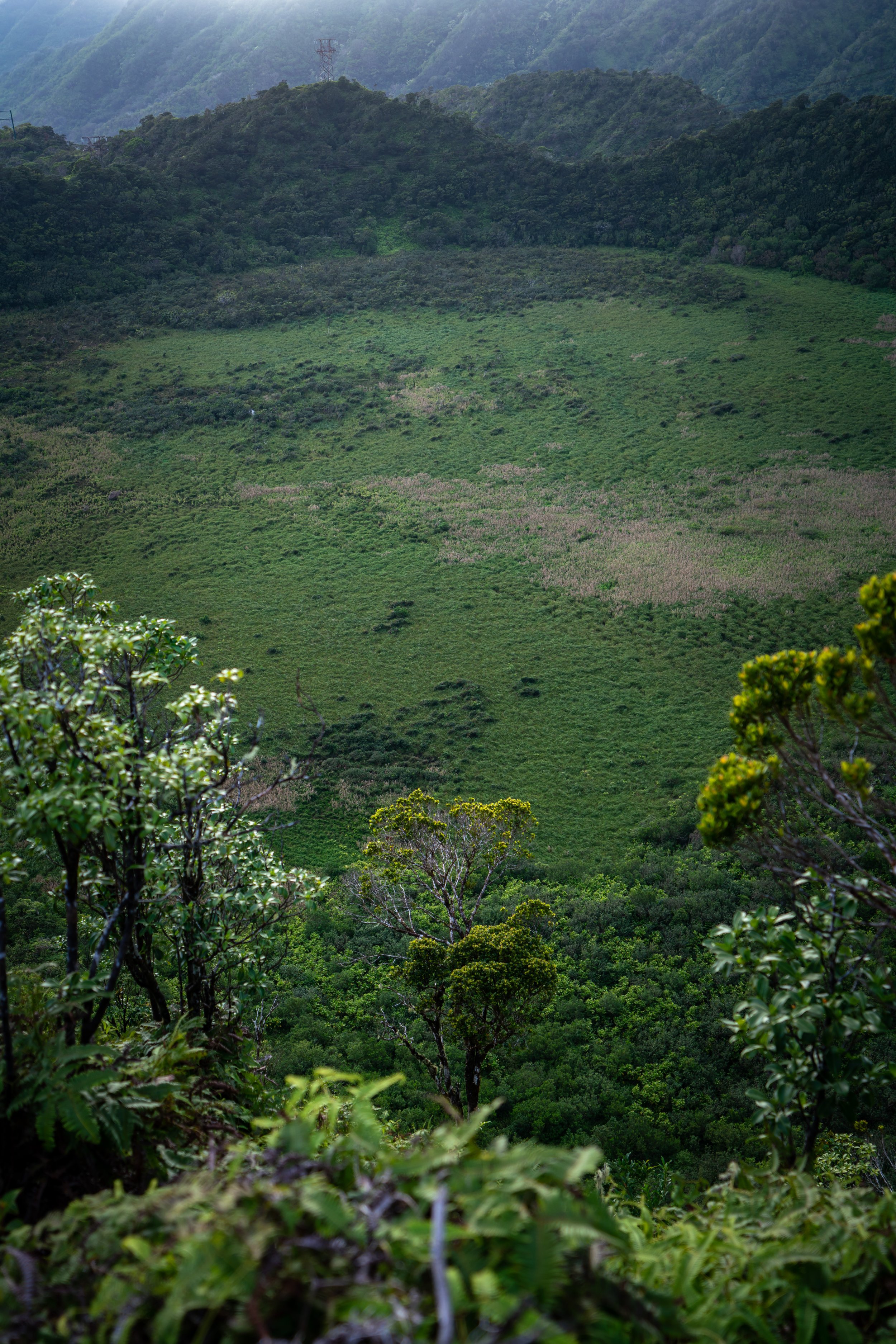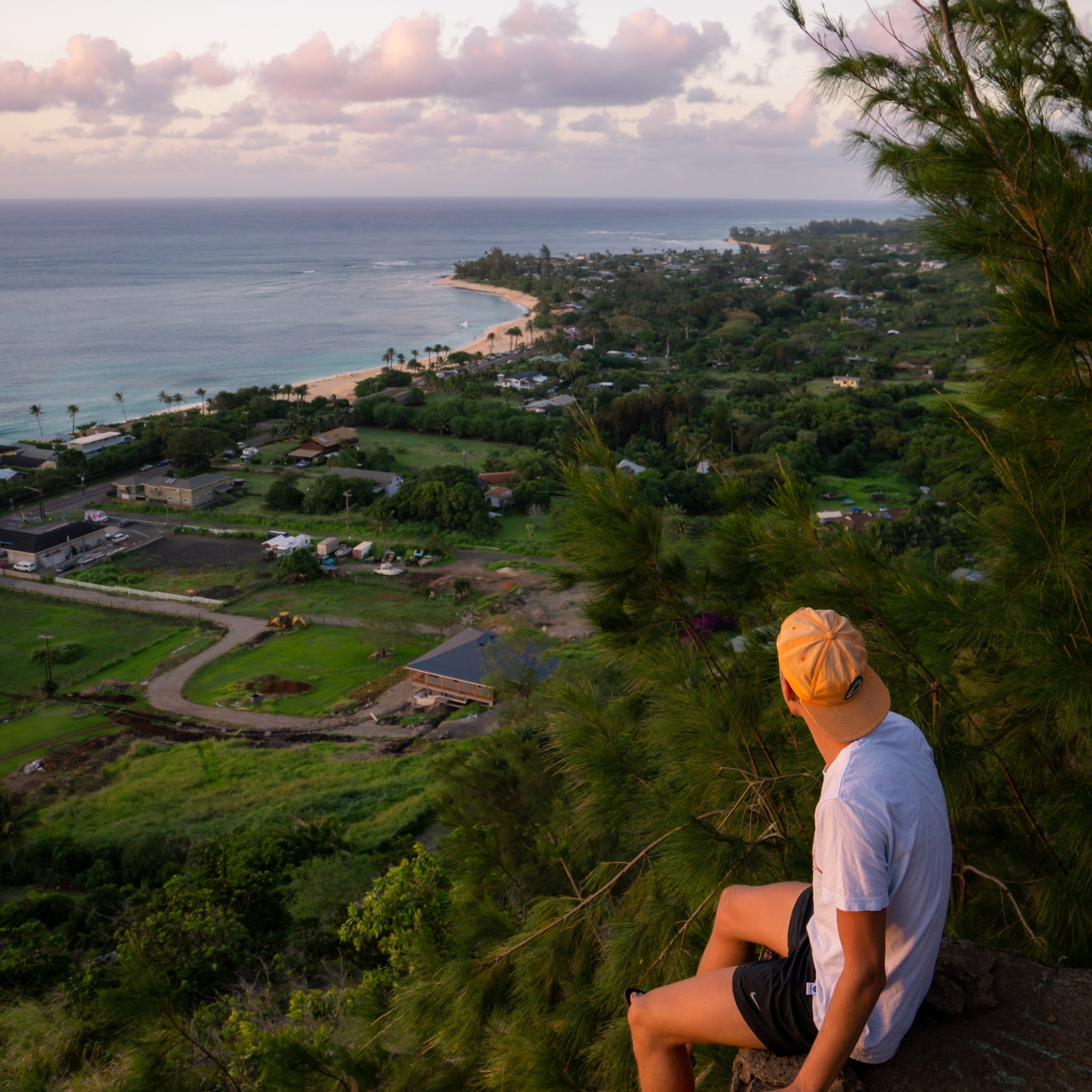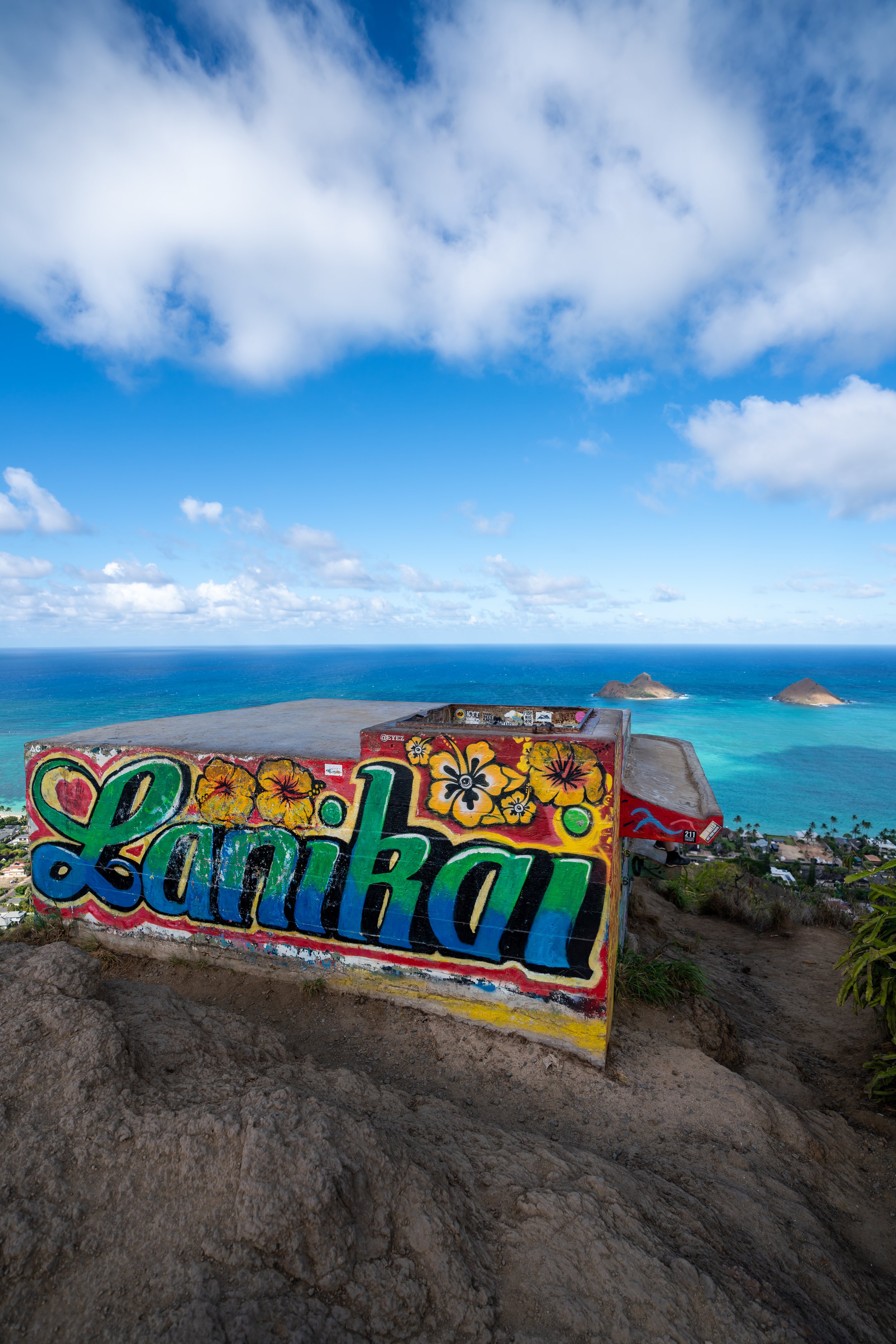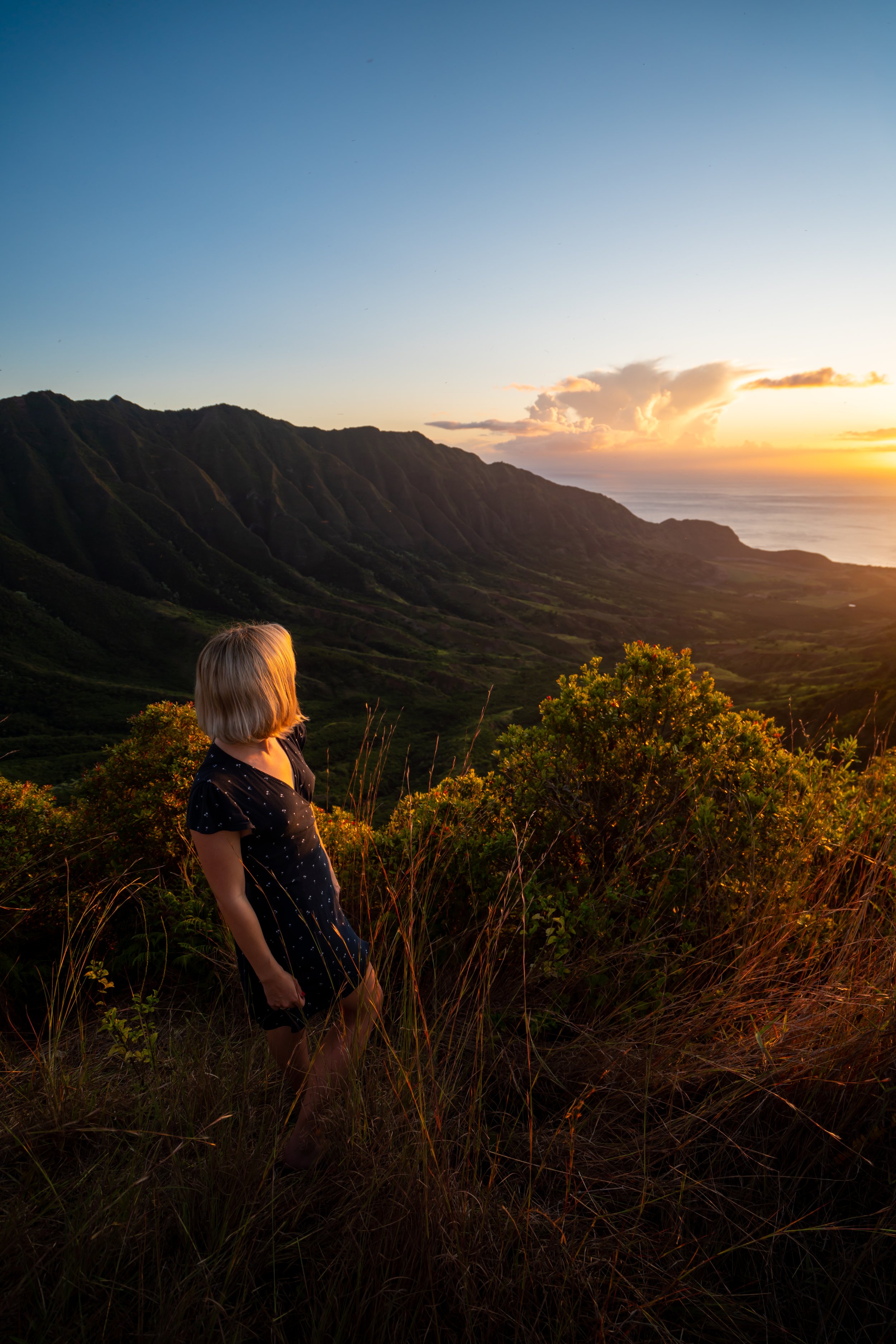Hiking the ʻAihualama Falls Trail at Lyon Arboretum on Oʻahu, Hawaiʻi
Distance: 1.3 miles / 2.1 km
The ʻAihualama Falls Trail in Mānoa Valley on Oʻahu is an easy out-and-back hike through the Harold L. Lyon Arboretum, a research unit of the University of Hawaiʻi that has a special focus in rare native Hawaiian plant cultivation.
That said, ʻAihualama Falls is truly the culmination of the whole arboretum experience, as the waterfall at the end of the trail is the furthest point that visitors can reach on the trail.
With that in mind, the distance above is only the shortest possible route to ʻAihualama Falls, which I mention because it’s most common to hike a bit further by exploring any one of a number of different side trails through the botanical garden—much like the Waimea Valley Trail on Oʻahu’s North Shore.
Are Reservations Required to Visit Lyon Arboretum?
No. Reservations used to be required to manage visitor traffic and the limited parking stalls available at the arboretum, but since June of 2025, this requirement is no longer in place.
How Bad are the Mosquitoes?
Compared to the neighboring Mānoa Falls Trail, the mosquitoes throughout Lyon Arboretum and the ʻAihualama Falls Trail are pretty bad, which is why I highly recommend wearing long sleeves and hiking pants for a more enjoyable experience.
ʻAihualama Falls Trailhead Parking
Parking the Lyon Arboretum and the ʻAihualama Falls Trail is not the same as the Mānoa Falls Trail.
Rather, a completely separate parking lot is located just up the road from the paid Mānoa Falls parking area, which is free parking for arboretum visitors.
Simply let the Mānoa Falls parking attendant know that you’re there to visit Lyon Arboretum when you drive up, and they will let you through at no cost.
Google Maps Directions: Lyon Arboretum
Hiking the ʻAihualama Falls Trail
Lyon Arboretum Visitor Center
All guests are required to sign in at the visitor center before visiting the arboretum/ trail.
From the visitor center, you can either continue walking through the native Hawaiian plant section or turn back toward the parking lot to take the fastest route to ʻAihualama Falls.
I personally recommend hiking the extra 0.1 miles (0.2 km) through the native Hawaiian section because it’s a much nicer hike than simply following the main trail.
The photos below on the left show the main trail, while the photos on the right show the native Hawaiian plant garden.
Main Trail
Native Hawaiian Garden
ʻAihualama Falls Trail
At this point, both routes come together for the rest of the trail to ʻAihualama Falls.
Throughout the trail, there will be a variety of side trails that lead through different sections of the arboretum, which you can follow using the map available from the visitor center.
Hawaiian Section
If there’s any section that I recommend the most, it’s the native Hawaiian plant section.
Here, you can see a ton of different native Hawaiian plants that are both common and very rare in nature.
Additionally, the views from the upper portion of the Hawaiian section are worth the visit alone. From there, you can see numerous waterfalls across the valley, which I have a photo of at the end.
Stay left to keep on the main trail.
Go right to stay on the ʻAihualama Falls Trail.
ʻAihualama Falls
The trail ends at the beautiful ʻAihualama Falls, which may have more or less water depending on the amount of rain Mānoa Valley has received recently.
What’s the Trail Past ʻAihualama Falls?
I do not recommend taking the trail past ʻAihualama Falls.
While it is possible to continue hiking through Mānoa Valley and end back up at the beginning, the route is very confusing and not well marked.
I have hiked extensively across the back of Mānoa Valley to know that there is not a great way to describe all of the trails back there.
It’s very likely that you could become lost.
Native Plants at Lyon Arboretum
Lyon Arboretum is an amazing place to learn about native Hawaiian plants because the arboretum is tasked with maintaining and propagating such a large collection of both common and very rare species.
Usually, I list out a variety of native plants that you can expect to see, but I think that’s really what the tour is for.
If you want to learn more about native Hawaiian plants, both at Lyon Arboretum and across Hawaiʻi, check out my separate post where I share all of my observations from different locations throughout the islands
Read My Separate Post: Native Hawaiian Plant Guide




